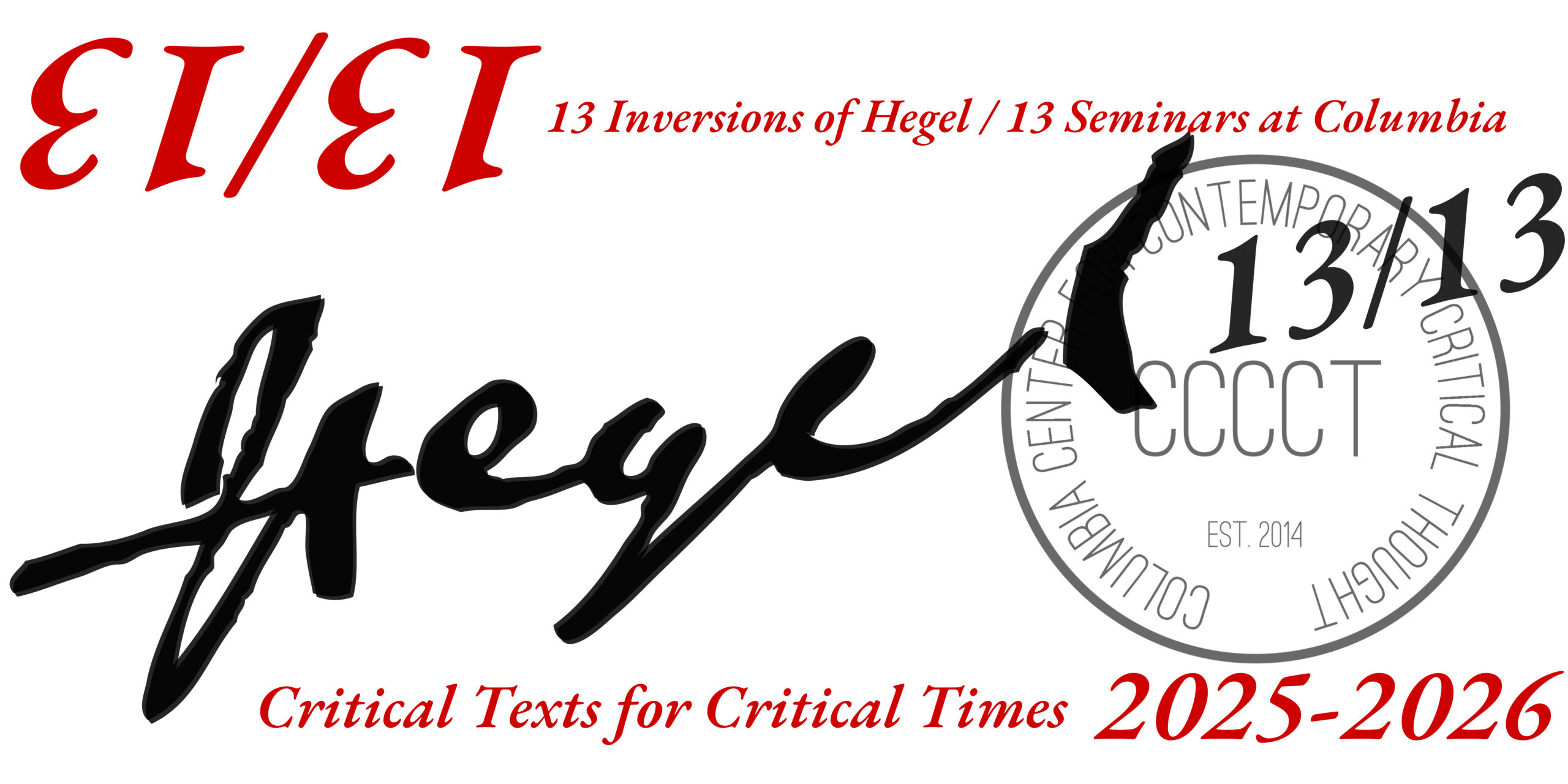GRCCCT 2025/2026
Graduate Research Colloquium in Contemporary Critical Thought
Welcome to the Graduate Research Colloquium in Contemporary Critical Thought (GRCCCT)!
This research initiative offers a bi-weekly online workspace for M.A. and PhD students to discuss their research projects in the field of contemporary critical thought. The goal of the colloquium is to connect students with similar research interests in the field, in particular those working in the aftermath of two traditions of critical theorizing – so-called “Critical Theory” of the Frankfurt School (Horkheimer, Adorno, Marcuse, Benjamin, Habermas, Honneth, and others) and so-called “Post-Structuralism” (Foucault, Derrida, Deleuze, Guattari, Butler, Rancière, and others). The colloquium aims to create discussion between students who build up on and engage with theories and concepts made available by thinkers from one or both schools of thought. Moreover, at the end of the academic year the colloquium organizes an in-person workshop at which participants can present their projects, in dialogue with researchers in the field.
We welcome contributions from philosophy or political theory but also other fields of research (for example sociology, anthropology, legal studies, literary theory, art history, performance studies, data science). The contributions usually include a short presentation of a research project, for example a dissertation proposal, conference or article papers, or a chapter of a PhD dissertation or M.A. thesis. The presentation is followed by a discussion with the participants of the colloquium who give feedback on the presentation. In the last cycle of the seminar students presented their research on topics like “Social Totality and the Dialectics of Labor. Hegel contra Habermas,” “A Critical Reading of Hayek – or the Racial Color Blindness of Neoliberalism,” “How the Market Swallowed Love: the Economisation of Personal Relationships,” “Do We Have a Right to Interpellative Co-Authority? Notes on the Debate about Gender-Neutral Language,” “Toward a Liberated Erotic Society: Dustan, the Social Contract, and the Repressive Hypothesis,” “Rahel Jaeggi’s Concept of ‘Crisis’ in Confrontation with (Neo-)Colonial Situations,” or “On The German Ideology. Ideology as a Means of Class Struggle”. Furthermore, we organized a workshop session on the relationship between normativity and critique with Professor Amy Allen.
In the academic year 2025/2026, the Colloquium welcomes new contributions. We will kick off with a first meeting on September 23rd, 8pm (European Central Time) on zoom. In the following months, participants will have the opportunity to present their own research. If this sounds interesting to you, please fill out this form (2 minutes) and join our first session on September 23rd. For more information and questions, feel free to contact Florian or Samu/elle.
Florian Meier (New School for Social Research), Samu/Elle Striewski (University of Oxford) and Jonas Lang (University of Frankfurt) for the Graduate Research Colloquium at the Columbia Center for Contemporary Critical Thought.
Program
14.10.2025 – Florian Meier (New School for Social Research): “‘Interregnum.’ Diagnoses of Crisis in Gramsci, Mouffe, Streeck, and Fraser.”
11.11.2025 – Ariane Velasco (University of Sao Paulo): “Domination, Abstraction and the Critique of Political Economy: Analyzing Adorno’s Concept of Ratio.”
17.11.2025 – Matteo Polleri (Sciences Po Lyon): TBA
25.11.2025 – Louise Lurcin (University Paris-Nanterre): “Self-Narration and Critique: Thinking (with) Autobiographies.”; Dylan Lackey (Virginia Commonwealth University): “Anselm Kiefer the Alshemist: From Sublimation to Sinthome in Contemporary Art.”
09.12.2025 – Jonas Lang (University of Frankfurt): “The inevitability of power. Social change, exclusion and history in Michel Foucault.”; Debora Braun (Federal University of Minas Gerais): “Foucault’s Hegel: The Historical A Priori and the Supposed Methodological Failure of Archaeology.”
20.01.2025 – Noah Mertz (University of New Mexico): “Is Queerness Revolutionary? Dustan, Foucault, Edelman.”
